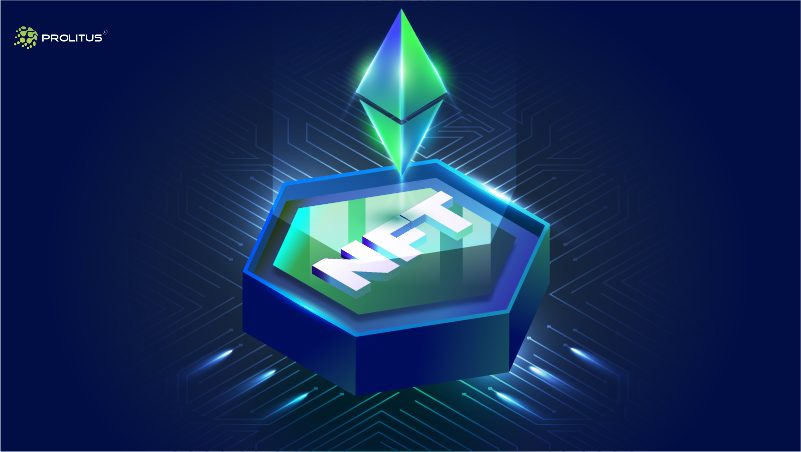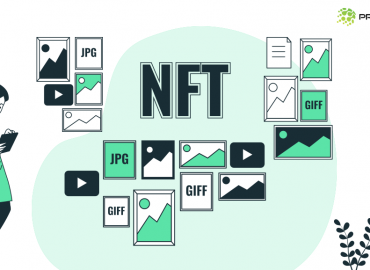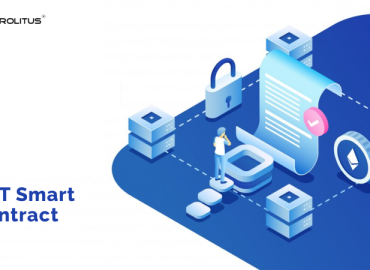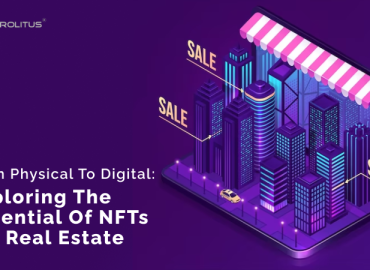The recent influx of news surrounding the trend of NFTs, non-fungible tokens fetching exorbitant prices online, has a global reach. Even though they have recently become a new fad for celebrities to spend millions on, NFTs have a surprising amount of utility in addition to their collectability.
Why are people buying NFTs?
It is a type of programmable deed of ownership of a blockchain-based asset. This digital deed grants its holder the sole right to use, sell, and transfer ownership rights to the asset. An item can be made unique by assigning it a code, and the resulting ‘digital deed’ or token, which cannot be replicated, proves one’s ownership of that digital asset.
GIFs, digital art, and static images can all be found at NFTs. An NFT’s unique selling point is that it is used to prove ownership of a digital item; the use-cases for NFTs, which run on blockchains such as Ethereum and Matic, are diverse. An NFT can be viewed as a genuine piece of digital art or an asset that can be used to earn cryptocurrency in games.
Artists also use NFTs to prove ownership of their digital art. This can be a JPEG, GIF, painting, audio/video file, or any other type of digital file. The file is kept in decentralized storage, and an NFT can be generated to prove ownership.
NFTs have also created a secondary market for digital asset sales. NFT collectors, like creators, can now list and sell their NFTs on a marketplace. A royalty is paid to the original creator each time the token changes hands.
Advantages for buyers?
According to a Cointelegraph Research report, a $1,000 investment in Bitcoin in 2017 would have yielded more than 16x returns today. Compare that to the 125,000x return on a $1,000 investment in a made-up portfolio of NFTs that represents a small portion of all NFTs ever sold on the Ethereum blockchain.
- Some venture capitalists believe that the NFT market will not only survive but will grow larger and more critical. This is because they anticipate our lives becoming more virtual in the coming years.
- Rather than just buying digital photos, videos, and game assets, we may soon be purchasing real estate and stocks. This means that everything in the metaverse is turned into an NFT token that can be bought with cryptocurrency.
- NFTs have also emerged as a powerful branding and marketing tool, as they allow consumers to own a piece of a brand and thus help expand its fan base. MG and Mahindra, which make cars, have also recently said that they will be entering the NFT market.
- In the early times, there were only a fraction of people who saw the potential of the NFTs and were willing to invest. But after 2021, things have taken a turn for the good; the NFT space has been receiving massive pitches from buyers across the globe.
NFTs for business
As we continue to explore this new, entirely digital asset class, we should keep the practical application in mind that it can provide: a highly secure, all-encompassing approach to online business transactions. The usefulness of NFTs comes from the fact that they use blockchain technology. Blockchain is a decentralised digital ledger that is hard to change or hack.
This technology has almost limitless applications beyond simple pixelated art, aside from proving ownership of a unique digital asset. It is useful in any situation where ownership must be tracked and proven. Instead of spending time looking for paperwork to prove you bought and owned something, the NFT would provide a perfect record of an item’s entire ownership history.
Furthermore, the time-keeping and pricing mechanisms built into their NFTs create a digital work order that can be changed in real-time as the job progresses. It’s not just about utility; NFTs improve security as well.
A secure transaction platform
Paper-based transactions are inefficient, necessitate more human employees, and are prone to be lost. They do, however, have one advantage over today’s cloud-based documentation: It is frequently easier to prove the authenticity of a paper document. Online documents can be hacked, duplicated, or altered, costing businesses millions of dollars each year.
Future NFTs may be able to solve both of these issues. They add a new layer of security to digital transactions while also increasing efficiency. Anyone involved in a transaction can see in real-time the NFT’s journey from creation to the final version, as well as who else was involved in that journey.
It creates a nearly unhackable system that is encrypted, easily distributed, and cannot be changed. Identity theft might not exist anymore. The asset that an NFT stands for is tracked and checked to make sure it exists. This gives everyone involved in a transaction more confidence that it is accurate and legal.
Involved Risks
There are certain practices, such as price manipulation, which can be a possible disadvantage for the NFT market. As it makes the whole market vulnerable. Another difficulty is determining the price of an NFT. The ‘hard-to-get’ factor governs the majority of value. Also, there is no one legal definition of NFTs around the world. Different countries, like the UK, Japan, and the EU, have different ways of classifying them.
Another risk is when someone impersonates a well-known artist and sells counterfeit NFTs. Another risk is shill bidding, in which prices are artificially inflated by bidders who do not intend to win the auction. This could be done in cooperation with the market or the NFT vendor.
Some experts are still sceptical about the future of NFT and believe that any bubble, including crypto, will eventually burst.
The current frenzy has resulted in JPEGs selling for millions of dollars, with artists and new investors cashing in. However, unlike physical artworks, it is still easy for others to make convincing copies, which may make it less valuable in the future because it is much easier to make an exact copy of a digital photo than a painting.
How Prolitus can help you with NFT Development
Final Thought
NFTs have the potential to be infinitely helpful in many industries by increasing transaction security and processing costs while also providing a new platform for the gig economy to operate on. Every day, the promise of NFT technology to democratize and reward community participation grows. However, the financial aspect may cause too many people to suffer, and it will not become mainstream.
Frequently Asked Questions
Question 1: How do NFTs work?
Non-fungible tokens are a unique representation of a blockchain-based asset.
Question 2: Can NFTs be used for business?
The growing technological adoption of NFTs and blockchain will revolutionize business methods.
Question 3: Are NFTs secure?
NFTs can be easily tracked, and they add a layer of security to the transaction while increasing efficiency.
Question 4: What is the future of NFTs?
They have a lot of potentials and will be utilized in every industry and their unique value attracts several investors.





